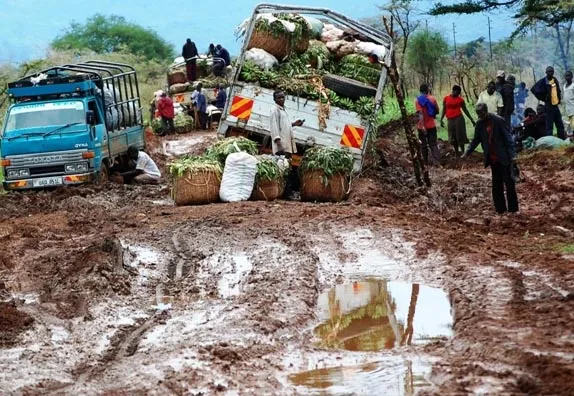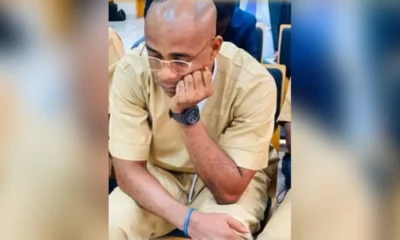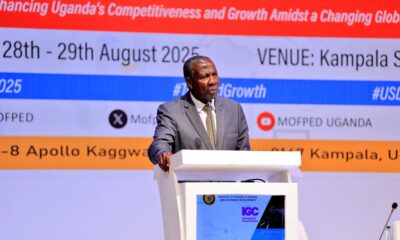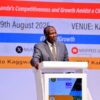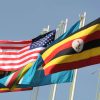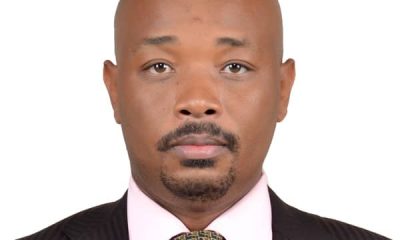Opinions
Andrew Mwenda: On Museveni’s Roads Crisis
President Yoweri Museveni complained recently about the bad state of our national trunk roads. He blamed “people” who have “caused this disastrous state of our roads” as not understanding the ideology of NRM. It is always interesting [and intriguing] to watch the president speak like a distant observer of the crisis, not as the chief executive of the state responsible for the failures of his government. Although he blames his subordinates for these failures, he is always quick to take credit for all their achievements.
Museveni entered the 2016 presidential elections with a good record of national trunk roads. One would drive from Kampala to any border: Bundibugyo, Bwera, Bunagana, Katuna, Kagitumba, Busia, Malaba, Nimule, Oraba, Vura, etc., on a clean tarmac road. You could also drive from many district towns to others on good tarmac roads. Even in rural areas, many gravel roads were in a good state. I leave Kampala out of his discussion because its roads have always been bad, even though they have turned worse over the last 10 years.
Today, the situation has changed significantly. The road from Kampala to Fort Portal is dead between Mityana and Mubende and between Kyegegwa and Kyenjojo. The road from Kasese to Bwera is gone. The one from Fort Portal to Bundibugyo is rapidly dying. The road from Karuma to Arua is in a bad state, as is the one from Masaka to Mutukula. The road from Soroti to Lira has died, while the one from Kampala to Hoima has deteriorated badly. The roads from Mbarara to Ibanda and from Mbarara to Bushenyi have suffered atrophy. The same has befallen the road from Ntungamo to Rukungiri. True, some good new roads have been built over this period. But it does not make sense to build 100 km of new tarmac when 130 km of tarmac falls into disrepair.
Recently, the speaker of parliament said she had toured the country and had been shocked and surprised at the state of our national trunk roads. She said parliament has always passed money for road development and maintenance. She then wondered what had happened to this money. How did we get to this state of crisis? This question is especially important because Museveni has been president for almost 40 years now. So, he cannot continue to blame former presidents Milton Obote and Idi Amin for the current crisis, as he used to do in the early years of his presidency.
In 2008, Museveni announced a big change in our national road policy. His government increased the budget for roads in a big way. To ensure effective implementation of this vision, it created the Uganda National Roads Authority (UNRA) to build new roads and the Road Fund to maintain existing ones. The improvement of the road network between 2008 and 2015 was due to this decision. Problems started when Museveni fell out with Allen Kagina, whom he had appointed to head UNRA. At that point, he lost interest in the road sector. Then his brother, Gen Salim Saleh, initiated a public sector reform agenda. It advised that UNRA (and other government agencies) be closed and merged with their parent ministries.
This is how problems began. Initiated in 2018, the process of reform became a battlefield for different interests, lasting six years. During this time, UNRA was starved of funding, leading to poor maintenance and little investment in the development and rehabilitation of old roads. This also engendered an even bigger problem: asset stripping. Staff at UNRA, unsure of the future of the organisation and their job security, reduced their work effort. As the government and the media debated the fate of UNRA, its staff had little incentive to keep the candle of building new roads, rehabilitating old ones, and maintaining existing ones. The road network just fell apart.
The other problem is our democratic politics, which privileges form over substance. Building new tarmac roads tends to bring in more votes than maintaining and/or rehabilitating old ones. So, the government of Uganda got obsessed with claiming that they have added this or that number of kilometres of new tarmac to the national road network. Construction of new roads was done without maintaining the old ones or rehabilitating them. Thus, as the government chest thumped on the number of kilometres of new tarmac it had built, it ignored the number of kilometres of tarmac that were falling into disrepair. By 2025, it was clear that the rate of building new tarmac roads was falling behind the rate at which old tarmac roads were collapsing.
One of Uganda’s biggest challenges in road policy is poor maintenance. In every budget, the government devotes 90% of its money to building new tarmac roads and only 10% to maintenance. Poor maintenance leads to rapid deterioration in the quality of roads, which itself leads to high costs of reconstruction. This is the story of Africa’s persistent inability to learn from experience. For example, in its 1994 World Development Report, the World Bank estimated that “timely maintenance of US$ 12 billion would have saved road reconstruction costs of US$45 billion in Africa over the period of 1984 and 1994.” That is the story of Uganda 30 years later.
Yet one would expect the Museveni government to be more active in road maintenance. This is because, regardless of many of its democratic deficits, it is a government that is held accountable by citizens through elections. Museveni remains president largely (though not entirely) due to electoral competition. In each of these elections, he feels threatened and has often resorted to violence to rescue his political situation and keep his job. This threat of losing elections is worse for legislators and leaders in local councils.
For instance, our parliament today has 529 members. However, only 104 of these were in the previous parliament. This means that 75% of our legislators were kicked out of office. The same applies to leaders of local governments. This high anti-incumbency bias should therefore predict greater responsiveness of government officials to the needs of their electorate. It does not.
Roads beat education and health as vote-generating investments. Why? Because most voters do not go to school, and neither do they visit hospitals daily. But every voter uses a road every day. Therefore, the inconvenience of bad roads generates a bigger political backlash than failure in the health and education sectors. The only area that beats roads in public responsiveness is security. And here Museveni has performed fairly well. The failure to address the roads issue is, therefore, puzzling from the perspective of rational politics.
Author, Andrew Mwenda, is a veteran Journalist and also the CEO of Independent Magazine
Comments



